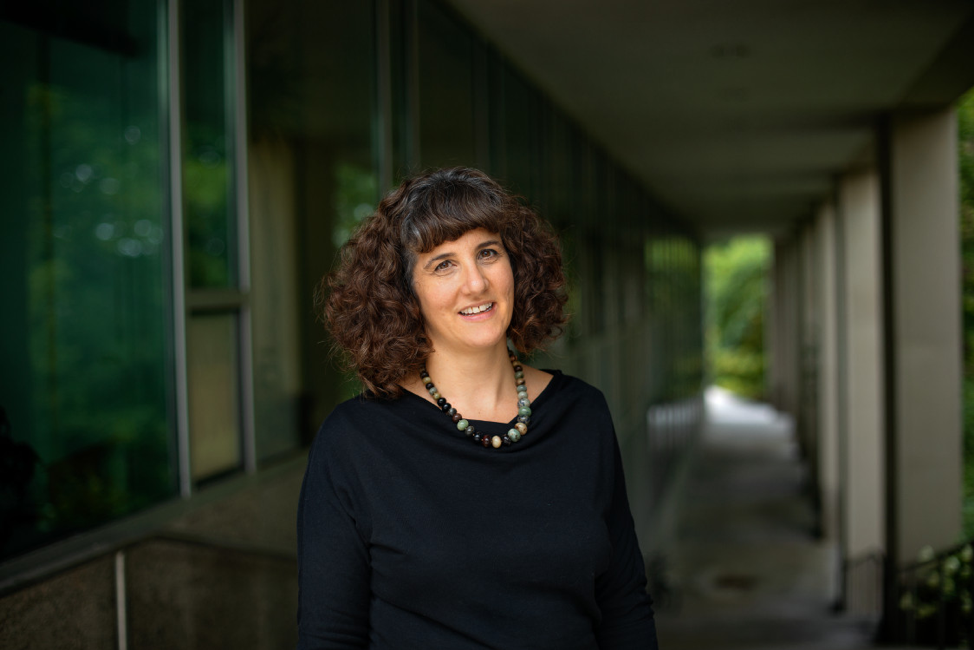Blog post by Matt Hayes.
Hale Ann Tufan, one of the world’s most powerful voices advocating for gender as a central tenet of crop improvement, has been named the 2019 Norman E. Borlaug Award for Field Research and Application winner by The World Food Prize. The award is the premier recognition in the world for young agricultural scientists under the age of 40.

Tufan, survey division lead for Next Generation Cassava Breeding and co-director of Gender-responsive Researchers Equipped for Agricultural Transformation (GREAT), was recognized for championing gender-supportive activities within the global agricultural research community. Her advocacy across disciplines has shifted crop improvement and agriculture research to include all people and genders.
“To effectively confront global hunger all voices must be heard and valued, regardless of gender, age, race, ethnicity and ability, as we join together as scientists, farmers and communities to grow life-giving food,” said Tufan. “Norman Borlaug believed in the power of human ingenuity to solve our greatest challenges, and his dedication reshaped the world. I am humbled to receive this award named in his honor and proud to work with collaborators from Cornell, Makerere University, IITA, NaCRRI Uganda and NRCRI Nigeria, amongst other researchers championing for gender equality.”
She will receive the award Oct. 16 at a ceremony at the World Food Prize in Des Moines, Iowa.
In 2012, she joined International Programs in CALS to manage NextGen Cassava, where she designed and led an initiative to reach women smallholder farmers in Uganda and Nigeria to better understand the gender needs and impacts in these communities. Her work with national agricultural research centers in Africa helped to mainstream and prioritize end-user preferences into breeding program design and implementation. In 2018, she transitioned to a new role at NextGen heading up our Survey Division with the aim of identifying traits preferred by farmers to ensure that NextGen Cassava breeding is demand-driven and inclusive. The Survey Division, established in our second phase, engages with small scale farmers and processors to help ensure that new varieties released by breeders have traits and characteristics that meet the demands of end users.
“Real change requires catalysts – people who are capable of seeing and acting on what others miss or are incapable of changing,” said Chiedoze Egesi, project lead for NextGen. “Hale is that kind of catalyst, and her efforts are sparking dramatic changes in how field research is carried out across sub-Saharan Africa and beyond, with impacts that will be felt by all for decades to come.”
Tufan, a native of Turkey, earned her Ph.D. in molecular plant pathogen interactions at the John Innes Centre, UK in 2010. That same year, she was an inaugural awardee of the Jeanie Borlaug Laube Women in Triticum Early-Career Award given by the Borlaug Global Rust Initiative in recognition of her contributions to wheat research and commitment to international agricultural development.
By leveraging gender-responsiveness the field, her work is benefitting men and women farmers and making communities healthier and more productive. The GREAT project, funded by the Bill & Melinda Gates Foundation, increases opportunities for equitable participation and the sharing of benefits from agricultural research and improves the outcomes for smallholder women farmers, entrepreneurs and farmer organizations across sub-Saharan Africa. Researchers from 18 countries and 22 institutions have been trained through GREAT courses since 2016.
The World Food Prize lauded Tufan for shaping new ways of thinking about agricultural science to create a more equitable society for all.
“By continuing Norman Borlaug’s legacy we can ensure that men, women, boys and girls all equally benefit in the fight to end hunger,” Tufan said.





